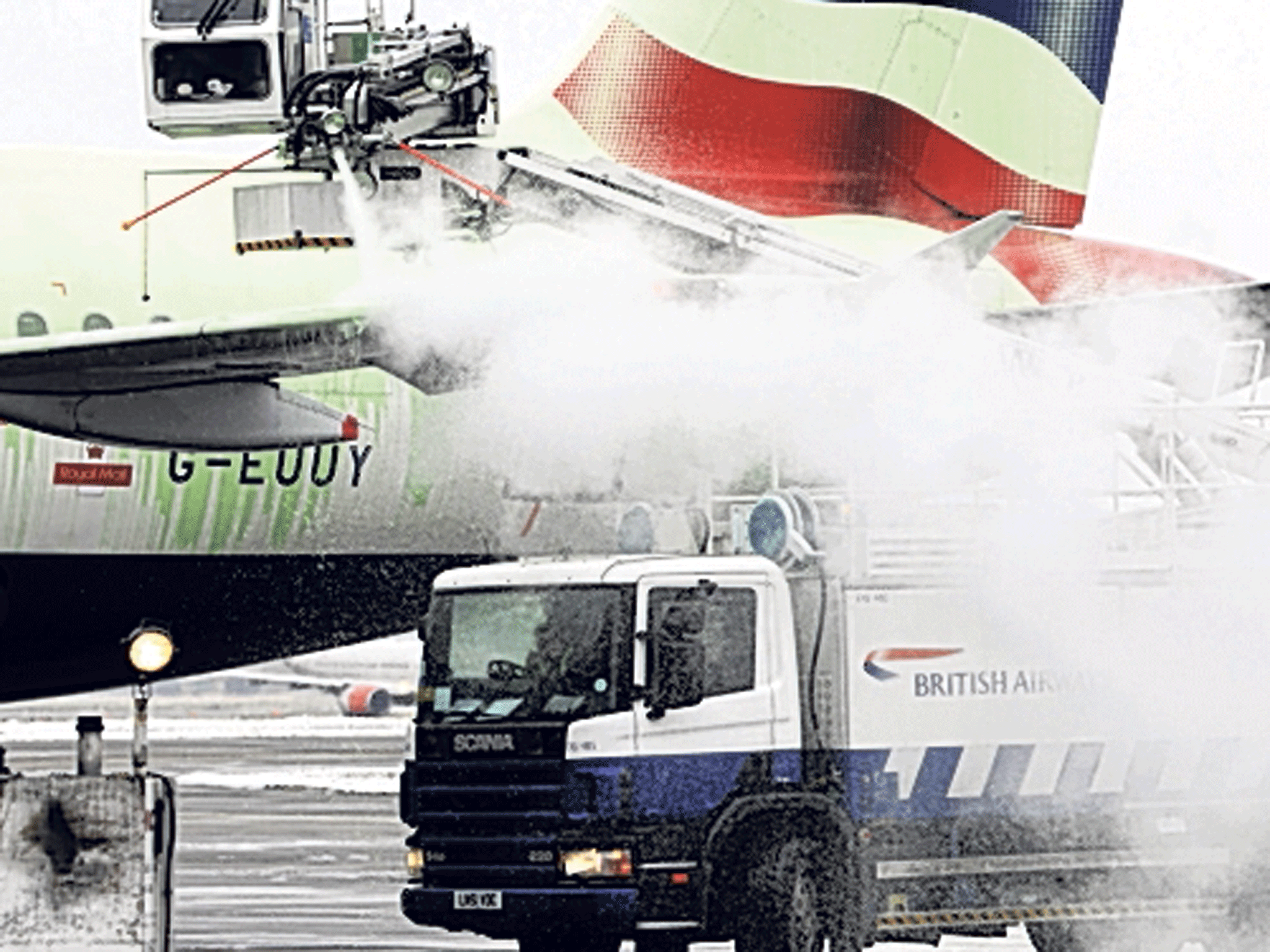Simon Calder: Another winter of airport discontent
The man who pays his way

Amie Richan was among the luckier passengers. Last Saturday morning she woke up in a hotel bed, rather than on a thin plastic mat on the floor of Europe's most expensive building, Heathrow Terminal 5. Even so, she shared the oft-quoted sentiment attributed to W C Fields: "All in all, I'd rather be in Philadelphia." She had been heading home to Pennsylvania, but was one of tens of thousands of BA passengers whose flights were cancelled at short notice last Friday when the snow arrived over London. Once again, Europe's busiest airport proved unable to cope. We pick up her story just after her flight has been abruptly cancelled and she was told to return "landside".
"There was absolutely not one person from BA in evidence in baggage reclaim. There were pilots and flight attendants looking for their own baggage and vainly attempting to contact managers and supervisors. A number of pilots said that they had never seen anything like this."
Eventually, she was assigned a hotel room 20 miles (and a £100 taxi ride) away at Tower Bridge. The hotel manager stayed on the phone to BA long enough to rebook her on another flight. She reached home at midnight on Saturday.
You know, of course, that Heathrow is 98.2 per cent full, and therefore any significant reduction in the "flow rate" of arrivals and departures will inevitably trigger cancellations.
You are also aware that, after the debacle two winters ago, the new, improved snow plan includes the option to cancel a proportion of flights, in advance, to create "firebreaks" allowing swift recovery from disruption. The airport, airlines and air-traffic controllers duly met on Thursday, the day before the predicted snow, and concluded there was no need to axe flights. The airport could cope. Of course it could.
Slots: lost the plot?
The latest snowstorm, or more accurately the response to it, will have cost British Airways somewhere between £10m and £20m in lost ticket revenue, accommodation and transport costs. Heathrow airport will have taken less of a hit; the lost earnings from the reduction in passenger numbers and flight operations will be partly offset by the commission the airport earns from delayed travellers' spending in cafés and shops. The cost to Britain's reputation of another national embarrassment is incalculable.
British Airways said it was "extremely sorry" for passengers' "frustration and inconvenience during this period of severe weather". The airport's chief executive, Colin Matthews, said, "I'm really sorry for every passenger who got caught up in the disruption."
Then "Mr Gatwick", in the shape of Stewart Wingate, boss of Heathrow's main rival, chipped in: "The over-scheduling of flights at Heathrow during the winter period should stop." His plan is from December to February that "Heathrow declares a level of capacity it can cope with in winter conditions. The additional flights then, for those three months, can move to Gatwick and Stansted." The idea is fanciful, because the airlines won't comply. If they wanted to fly to one of London's other airports, they could. But Mr Wingate's plan contains the germ of a good idea.
At present, the rigid rule on slots at Heathrow is "use them or lose them". Permission to take off and land at Heathrow is the most valuable commodity in aviation, so it seems obvious to insist that these precious resources are not squandered. The consequences, though, are sometimes absurd. British Mediterranean kept slots warm by flying empty jets between Heathrow and Cardiff. Across the year, the average plane has loads of spare seats; one out of four is empty, a proportion that increases in winter.
For the key winter months, airlines using Heathrow should be able to combine flights, in advance, without losing slots. BA's 11 daily flights to Paris can comfortably shed a couple, while Lufthansa's 10 Heathrow-Frankfurt hops could easily be decimated. The airlines could ramp up the schedule for Christmas and New Year, and again for the Valentine and half-term surges in February, when they can fill all available seats. It wouldn't be perfect, but it could be better.
No flexi-time at BA
Back in Philadelphia, Amie Richan is seething because her stress and expense were avoidable. "When bad weather was predicted on Thursday, I called BA to say I could fly earlier," she says. BA would allow passengers to change free of charge – but only to postpone a journey. People willing to travel earlier would have to pay hundreds of pounds for the privilege, which Amie declined.
Subscribe to Independent Premium to bookmark this article
Want to bookmark your favourite articles and stories to read or reference later? Start your Independent Premium subscription today.

Join our commenting forum
Join thought-provoking conversations, follow other Independent readers and see their replies